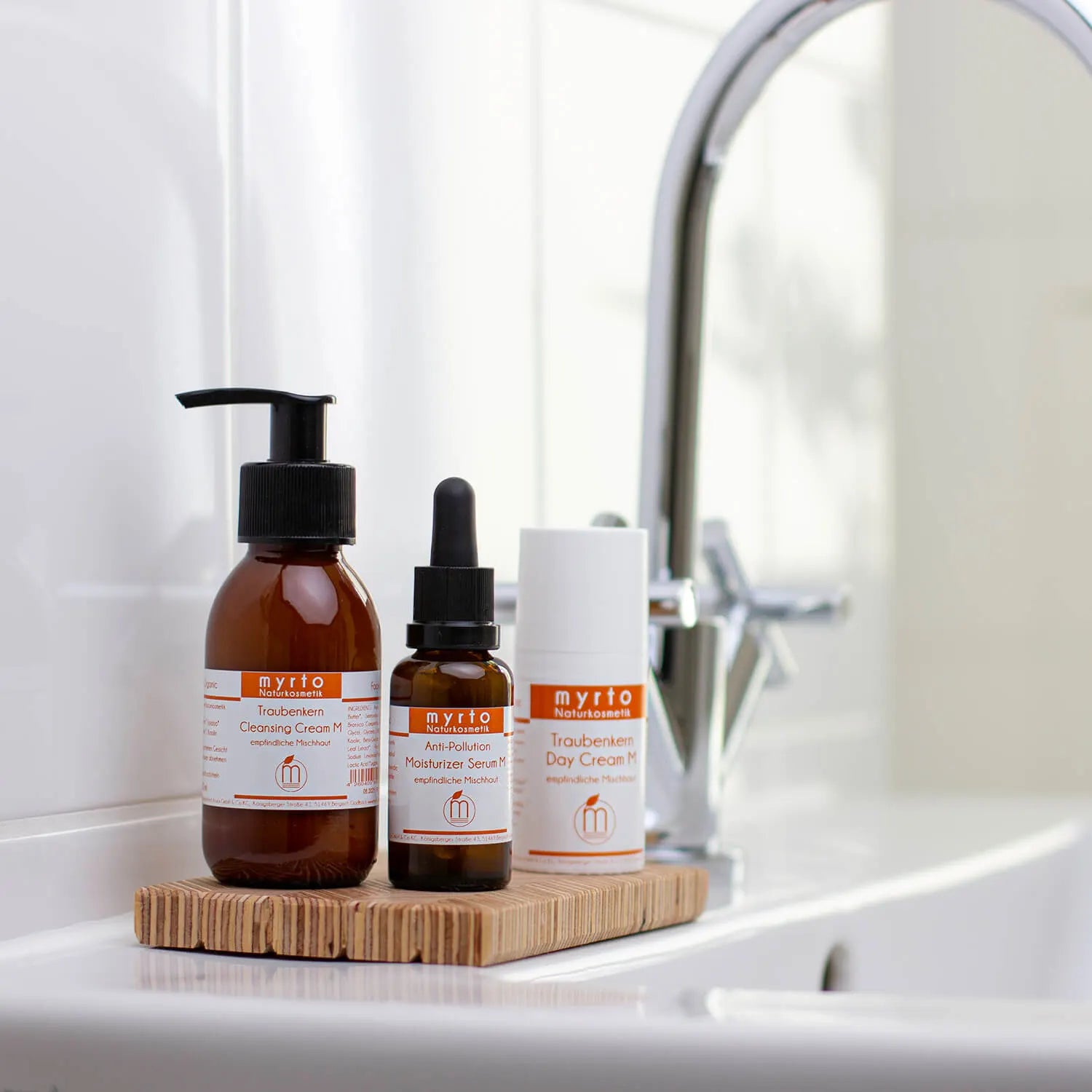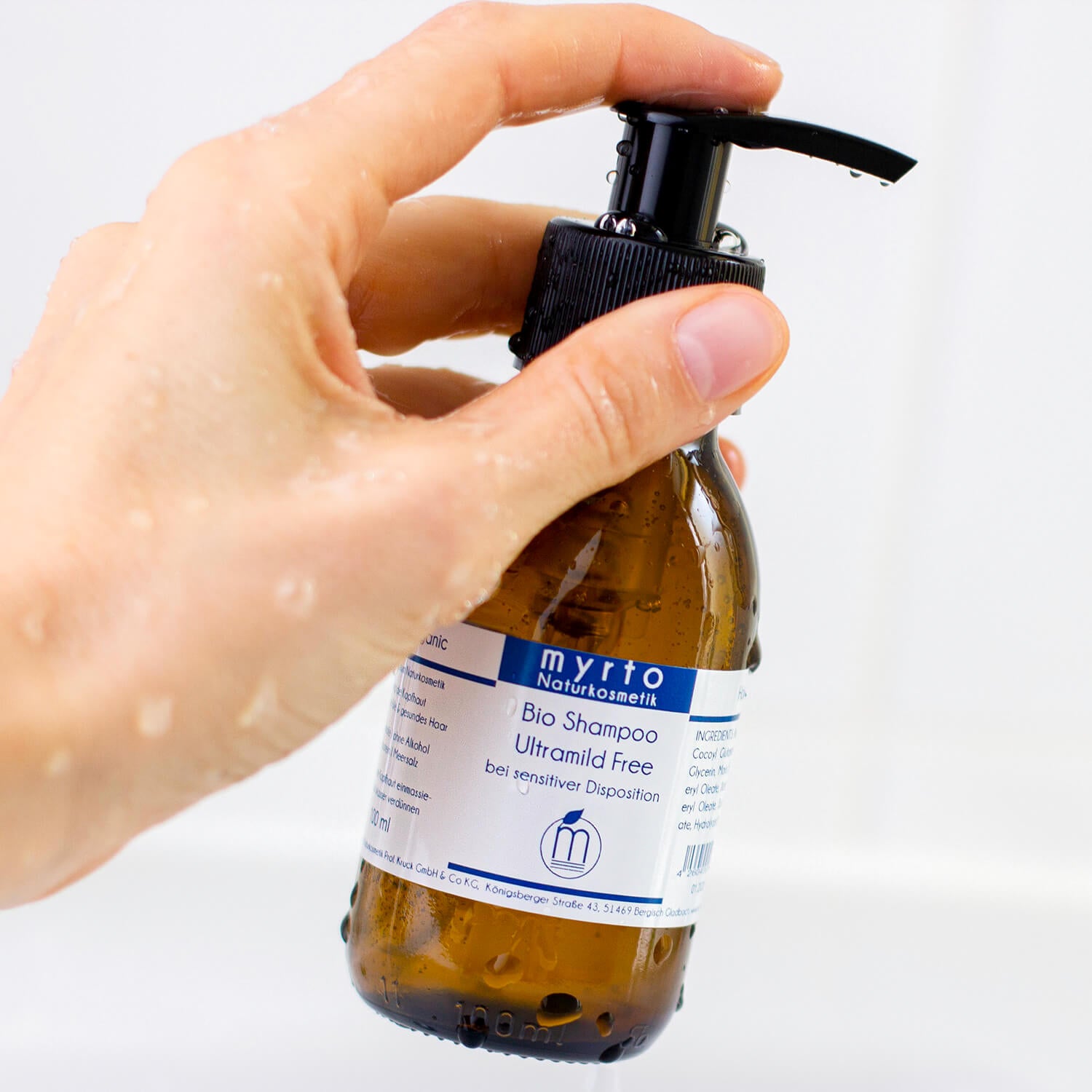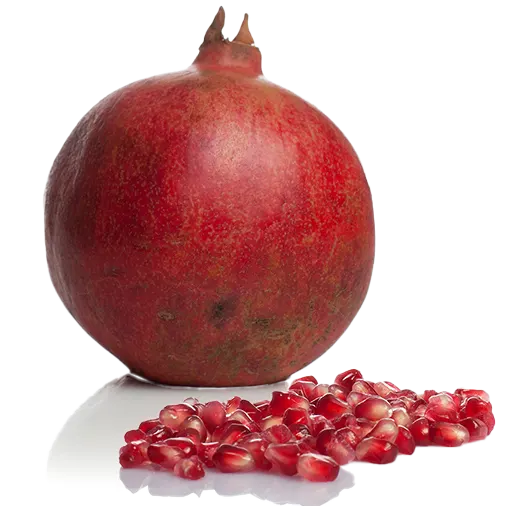
Proper care for sensitive combination skin
How do you recognize sensitive combination skin?
Combination skin, with its typical combination of dry and oily patches and occasional blemishes, is the most common skin type. This also includes rosacea-sensitive skin, which is prone to redness, pustules, or papules. With combination skin, the skin in the T-zone of the forehead, nose, and chin area usually appears oily and shiny, with increased sebum production and enlarged pores. Blemishes, blackheads (comedones), and pimples are more common. The cheek, eye, and neck areas, on the other hand, tend to be dry. Tightness, itching, and dryness lines often occur in dry areas. Sensitive combination skin often reacts more strongly to external influences such as the changing seasons.
How do blackheads and pimples occur?
Blackheads occur when a sebaceous gland, which produces excessive sebum, becomes clogged and hardens just beneath the skin. When the clogged pore becomes inflamed under the influence of bacteria, a plug known as a blackhead forms. Unfortunately, this often leads to an inflammatory pimple.
What causes impurities?
Combination skin is usually genetic. The blemishes are exacerbated by hormonal imbalances, (mental) stress, or an unhealthy diet. Inadequate detoxification of the body through the intestines – due to an imbalance in the intestinal flora – can also trigger pimples. Sometimes the skin simply reacts sensitively to so-called comedogenic substances used in cosmetics, which can promote pimples.
Care routine for sensitive combination skin
Surfactant-free cleanser without alcohol
Gentle facial cleansing without surfactants and alcohol is important. Overly degreasing facial cleansing causes the skin to increase its sebum production as a countermeasure, secreting more and more sebum. This sets off a vicious cycle. Instead of aggressive surfactants and oil-dissolving alcohol, myrto Cleansing Cream uses white clay (kaolin). This gently removes dirt residue and excess sebum without weakening the skin's protective barrier.
Skin-soothing toner
To provide your skin with additional moisture after cleansing, a skin-soothing toner is ideal. The Organic Magnolia Toner, based on aloe vera juice, is rich in antioxidant magnolia extract and soothing chamomile. Multimolecular hyaluronic acid provides ample additional moisture. The toner counteracts blemishes and spots, as well as tightness and dry patches. It is free from drying or irritating ingredients such as alcohol or fragrances.
Anti-comedogenic day cream
To restore balance to your sensitive combination skin, choose a balancing day cream without comedogenic ingredients, which can exacerbate blemishes and breakouts. Avoid mineral oils (e.g., paraffinum liquidum) or silicones, which clog your pores. They sit like an impermeable film on your skin and disrupt its ability to breathe. Instead, opt for antibacterial and balancing natural oils that are quickly and completely absorbed by the skin. These include:
- Grape seed oil - strengthens the skin's own protective layer, ensures a more even complexion, and counteracts keratinization of the epidermis. The sebum-regulating and anti-inflammatory effects of grape seed oil have been confirmed in numerous studies.
- Jojoba oil also balances sebum production. It cannot be metabolized by the pimple-causing P. acnes bacteria. Jojoba oil promotes faster healing of existing pimples, pustules, and inflammation.
- Argan oil - has a strong antibacterial effect against impurities. It increases the skin's natural moisture retention and can visibly improve the appearance of acne-prone skin.
- The myrto Organic Day Cream for sensitive combination skin is a light, non-greasy facial moisturizer that is quickly and completely absorbed by the skin without leaving a greasy shine. This slightly mattifying day cream is free from irritating additives. It contains no skin-irritating preservatives or fragrances, nor any drying alcohol or skin-weakening emulsifiers.
Balancing facial oil
Organic facial oils for oily, blemished skin – that might sound a little strange at first. Facial oils work according to a model principle. They signal to the skin that it is well supplied with oil and can therefore reduce its own sebum production. Additionally, the composition of the skin's natural lipids (sebum) is positively influenced, depriving pimple-causing bacteria of their breeding ground. Recommended active oils for pimples, acne, or inflamed skin include jojoba, argan, and grape seed oil. These oils are anti-comedogenic and therefore ideal for combination skin with occasional blemishes.
- Black cumin oil - effective against acne, pimples and fungal infections, is rich in polyunsaturated linoleic acid and gamma-linolenic acid, inhibits inflammation, regulates sebum production, relieves itching, strengthens the skin barrier, and alleviates allergic skin reactions.
- Hemp oil - inhibits inflammation, itching, and redness, contains polyunsaturated gamma-linolenic acid and antioxidant vitamin E, has a strong regenerating and cell-protecting effect, delays skin aging, and is effective in treating neurodermatitis, acne, and psoriasis;
- Tamanu oil - soothes blemished, reddened, and irritated skin. Tamanu oil, with its high linoleic acid content, is recommended for acne, anti-comedogenic, anti-inflammatory, heals wounds and scars, and relieves eczema.
Evening care routine
In the evening, your skin also needs a thorough yet gentle cleansing with a surfactant-free cleanser. The Deep Cleansing Oil is ideal for gently yet thoroughly removing makeup.
After cleansing, sensitive combination skin doesn't need a heavy night cream, but rather plenty of additional moisture. This can be achieved with products like the Deep Hydrating Hyaluronic Serum. The Brightening Vitamin Serum ensures an even and radiant complexion overnight. If your skin still feels tight after using the facial serum, apply 2-3 drops of Balancing Face Oil.
Special facial serums for sensitive combination skin
Facial serum for a refined skin appearance
The Anti-Pollution Moisturizing Serum contains 4% niacinamide. This form of vitamin B3 reduces excessive sebum production in oily skin, clears the complexion, and refines pores. Ectoine and willow bark have anti-inflammatory, balancing, and soothing effects. Multimolecular hyaluronic acid also provides deep-penetrating moisture.
Facial serum for the treatment of pimples and acne
The Copaiba Blemish Serum is an effective, specialized treatment for pimples and acne. Anti-inflammatory natural ingredients such as copaiba balsam and beta-glucan, along with zinc-rich lucuma, tamanu, and grape seed oil prevent pimples, promote faster healing, and visibly improve the skin's appearance. Low-molecular-weight hyaluronic acid provides deep-penetrating moisture. You can apply several facial serums one after the other, as long as you allow each serum to absorb for about two minutes. Apply the active ingredient serums as part of your skincare routine after toner and before face cream.
Antioxidant Vitamin C Serum
The vitamin C serum has an anti-inflammatory effect against impurities and helps acne scars heal faster. Redness and dark spots are visibly reduced. Vitamin C protects the skin from damaging environmental influences and promotes the formation of collagen fibers, which keep the skin elastic and youthfully smooth.
Different care routines - adapted seasonally
Combination skin, like any other skin type, requires different skincare routines depending on the season. Depending on the season, this means more lipid-replenishing care in winter with a facial oil, the water-free Amaranth Face Balm, or our soothing face mask or night cream. In summer, more moisturizing care is recommended. In warmer seasons, it may be perfectly sufficient to use an active ingredient serum with a lower fat content, containing high doses of hyaluronic acid and aloe vera, instead of a face cream.








